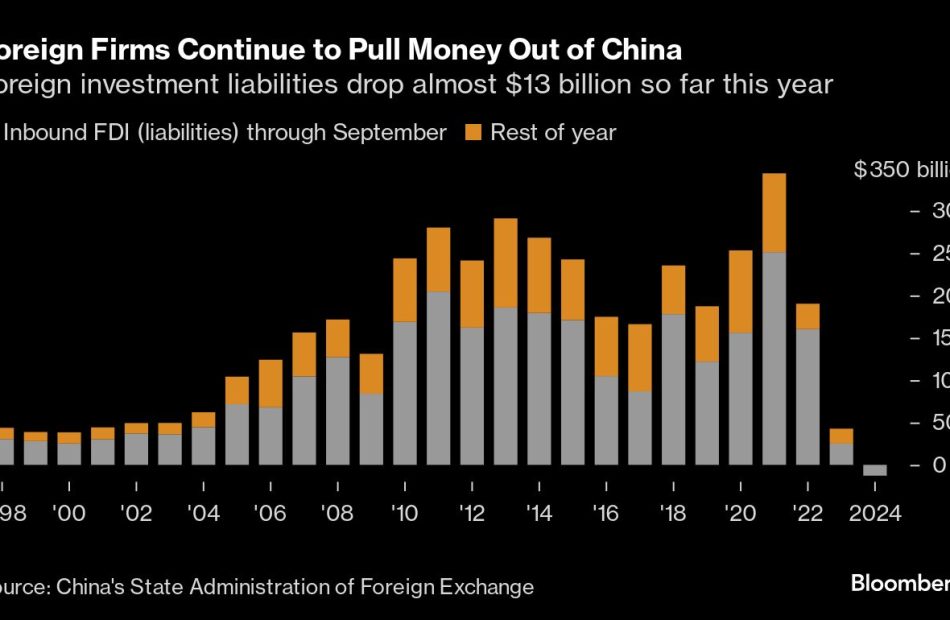Asian Stocks Fall as China Support Disappoints: Markets Wrap
(Bloomberg) — Asian shares slipped after China’s planned debt swap program looked insufficient to some investors and data showed persistent deflationary pressures.
Most Read from Bloomberg
A gauge of the region’s equities dropped over 1% Monday, with Hong Kong and mainland Chinese stocks down in early trade. Benchmarks also declined in South Korea and Australia. US futures edged higher after the S&P 500 rose 0.4% on Friday.
The broad weakness reflects lingering concerns about the prospect of the world’s No. 2 economy, after Beijing unveiled a 10 trillion yuan ($1.4 trillion) program to defuse local governments’ debt risk but stopped short of unleashing new fiscal stimulus. In addition to anemic inflation, sentiment toward China is also faltering as foreign direct investment continues to slump.
Investors had hoped for more potent stimulus measures that would directly boost demand from a key Chinese legislature meeting last week, especially after Donald Trump’s presidential victory injected fresh uncertainty over tariffs. To many economists, Beijing’s stance signals an intention to preserve room to better respond to a potential trade war when Trump takes office next year.
“I do feel that there’s a lot more behind the stimulus and I think that the market at the moment is having a very negative knee-jerk reaction,” Andy Maynard, head of equities at China Renaissance Securities, said on Bloomberg TV. “I still think from a volatility point of view, we are not out of the woods by a long, long stretch yet.”
UBS lowered its 2025 growth forecast for China following Trump’s election, expecting an “around 4%” expansion for 2025, and a “considerably lower” pace in 2026.
Elsewhere, Bitcoin surged past $81,000 for the first time, driven by the incoming president’s support for digital assets and the election of pro-crypto lawmakers.
Oil fell for a second day as a soft outlook for top importer China continued to plague the market, while iron ore declined toward $100 a ton.
The dollar was broadly steady. The yen fell 0.5% against the greenback, ahead of the Japanese parliament’s vote later Monday that’s likely to keep Prime Minister Shigeru Ishiba in the job despite a national election setback.
Federal Reserve Bank of Minneapolis President Neel Kashkari indicated at the weekend the central bank could ease rates less than previously expected amid a strong US economy. Kashkari emphasized, however, that it’s too early to determine the impact of Trump’s policies.





Leave a Reply